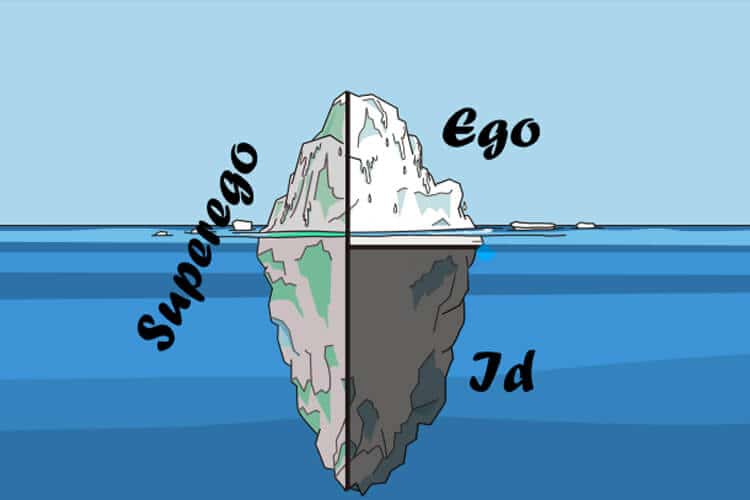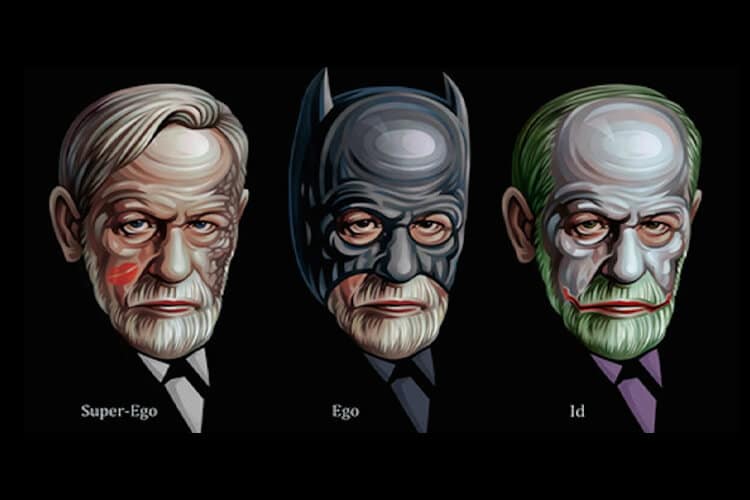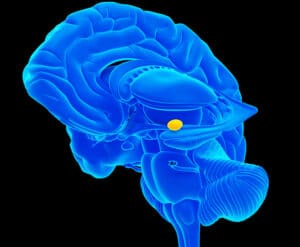According to Freud, ego ; It is an integral part of personality. This concept mediates the powerful demands of identity, superego, and reality. Freud defines identity as the most basic part of personality that encourages people to meet their most basic needs.
The superego, on the other hand, is the moral part of the personality that is formed in later childhood as a result of upbringing and social influences. It is the ego’s job to strike a balance between these two, which often compete for power, and to ensure that meeting the needs of the id and superego is in line with the demands of reality.
We love the object for its perfection, which we try to achieve for our own ego, and thus we try to satisfy our own narcissism in a roundabout way.
Sigmund Freud , Mass Psychology and Ego Analysis
Ego
The ego prevents us from acting, judging by our basic impulses (created by the id). It also tries to strike a balance (created by the superego) with our ethical and idealistic standards. The ego operates based on the reality principle, which seeks to satisfy the id’s desires in a realistic and socially appropriate way.
The ego gives continuity and coherence to behavior by providing a personal reference point that relates past events to actions of the present and future (represented in foresight and imagination). Body concepts form the core of the self’s first and early experiences. But the ego does not coexist with the personality or the body.
Ego Development
A newborn baby responds to stimuli, whether external or internal, but cannot control, anticipate, or change them. At this stage, cognition is primitive and disorganized, motor activity is coarse and uncoordinated, and self-actualization is impossible. Learning is the easiest stimulus-reaction conditioning.
Childish Version:
The infantile ego develops in relation to the outside world. reflects the desperate and dependent infant’s efforts to alter or alleviate painfully intense stimuli, as psychoanalysis emphasizes. Mechanisms evolve to control the situation as they seek ways in which gratifications can be obtained. These mechanisms evolve into more and more complex forms of mastery.
Growth:
As the individual continues to develop, everything becomes more different. In this process, the superego develops. The superego represents inhibition of instinct and control of impulses through the inclusion of parental and social standards. Thus, the social moral standards perceived by the ego become part of the personality.
Conflict, which is a necessary component for personality growth and maturation, is met. The ego begins to mediate between the superego and the id, building what are called defense mechanisms.
Word Origin:
Simply put, the word “ego” is a Latin word for “I”. Literally translated, it means “I”.
A Strong Ego
People with a strong ego are determined. They can resist sudden environmental and social pressure when making a plan or choice. The strong ego is further characterized in the person who is not overwhelmed by his impulses (but can instead channel them into useful channels).
On the other hand, weakness of the ego is manifested by things like impulsive or impulsive behavior, feelings of inferiority or complex, a fragile identity, unstable emotionality, and extreme vulnerability. In this case, reality and self-perception may be distorted.
In such cases, the individual may experience some difficulties in terms of productivity. Ego weakness also underlies the inflated sense of self that can be associated with a superiority complex.
Egoism
Egotism is another word for ego in psychology. Selfishness involves putting oneself ahead of others. Just as we are all selfish and self-centered, we also tend to be selfish. Thousands of studies show that people are biased in viewing themselves as being too positive.
Psychological selfishness claims that every person has one ultimate goal: their own well-being. Normative forms of selfishness make claims about what one should do rather than describe what one does. Selfish teachings are more about a person’s shared concepts and concerns than the philosophical question of what the self is. They see that perfection is sought by advancing one’s own well-being and profit.
What is Karma? How does it work? What Effects Does It Have on Humans?















